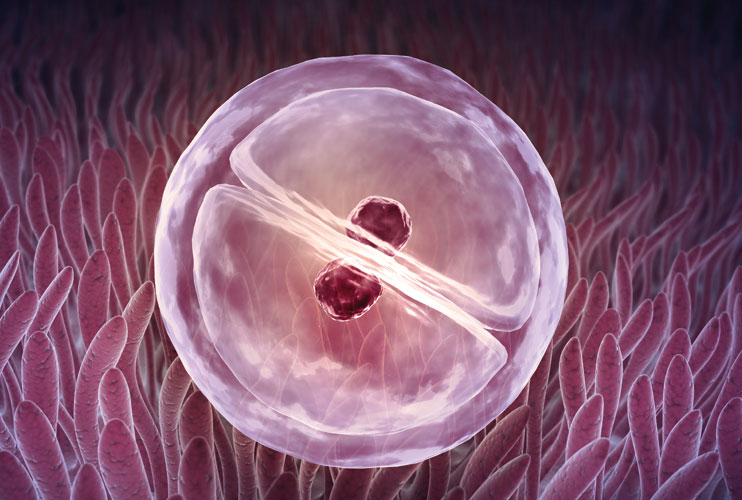B Vitamins are a group of water soluble vitamins which are excreted and not stored in the body; so they need to be continuously replaced. They are essential for brain health and resilience to stress as well as for athletic performance, cognition, prevention of dementia and Alzheimers and energy production. They may also be recommended for anxiety and depression.
They are found in animal foods such as egg, beef, pork, dairy, poultry, organ meats and fish. Plant food sources include avocado, broccoli, kale, asparagus, spinach, legumes, nuts and seeds, green leafy vegetables and mushrooms.
Although it’s possible to obtain good amounts from the right diet, deficiency of the B Vitamins and especially B12 is common. If you are taking prescription medications, are age 60 or over, vegetarian or vegan, preparing for pregnancy or pregnant, have a particularly strenuous life or any gut issues, it’s particularly important to consider testing and potentially supplementing your Vitamin B levels. If you have a history of miscarriage or infertility it’s recommended to check your levels.
1) B Vitamins are essential for preconception care and pregnancy
If you’re planning a pregnancy, you may have been advised to take folic acid or folate everyday for the prevention of neural tube birth defects. Although this is the most well documented pre-conceptual advice for B Vitamins, there are so many more reasons to explore the benefits of B Vitamins and ensure your body is receiving the right amounts, especially before, during and after a pregnancy.
If possible, plan to prepare for pregnancy by taking the right amount of B Vitamins for a minimum of 4 months, a year is even more beneficial. Preconceptual folate supplementation may reduce the risk of early spontaneous preterm birth, with the risk being inversely proportional to the duration of preconceptional folate supplementation.[i]
2) B Vitamins are helpful for conception and pregnancy outcome with ART
B Vitamins are well researched and understood to be an important part of pre-conceptual care, both for natural pregnancies as well as for couples undertaking assisted reproductive technology (ART).
Individuals with higher serum levels of both folate and Vitamin B12 may be more likely to conceive and give birth. Implantation of the egg into the lining of the womb may be more successful in women with higher serum B12. Fertilisation rates in ART may be higher and losses of successfully implanted embryos may be lower[ii].
If you are considering treatment for fertility or infertility, it’s important to optimise your vitamin levels. In vitro fertilisation (IVF) and intracytoplasmic sperm injection (ICSI) are both methods of ART. Whilst these technologies can be effective, ensuring you prepare your body through pre-conceptual care may increase your chances of success.
3) B Vitamins support Liver detoxification
The liver is the primary organ for detoxification; neutralising and removing any chemicals or molecules that are unwanted. This process is called biotransformation and it works by converting these toxins or unwanted molecules into metabolites that can be eliminated via the kidney and the colon.
B vitamins are needed for both phase 1 and phase 2 of this process.
It’s also important that your gastrointestinal system is working well, as waste needs to be efficiently disposed of in order to avoid reabsorption or build-up of toxins and waste products. Drink plenty of filtered water and if necessary, contact us about our GI profile if you know you have troubling digestive symptoms.
4) B Vitamins, methylation and stress management
Methylation is a primary method of removing toxins in the phase 2 liver detoxification system of the body. It is necessary for heavy metal removal, neurotransmitter and hormone regulation and histamine metabolism.
B-vitamins, especially Vitamin B12, B6 and folate support methylation which is involved in reducing and balancing high levels of homocysteine[iii],[iv]. Homocysteine is highly inflammatory if it builds up and may be linked to anxiety and memory problems.
5) Methylation, Infertility and recurrent miscarriage
Methylation or low methylation can affect every body system and of particular importance to our pre-conception clients is the relationship between methylation and fertility.
Methylation is a complex biochemical process responsible for gene expression and repairing DNA, moderating immune and inflammatory processes, and maintaining mood and a healthy nervous system as well as detoxification pathways. It’s vital for stress resilience and recovery.
A small but significant study examined need for the lowering of homocysteine in patients with recurrent miscarriages[v]. Women with MTHFR mutation may experience recurrent pregnancy loss. Supplementation with methylfolate, Vit B6 and B12 was found to be effective for the lowering of hyperhomocysteinemia. According to the findings, the reduced homocysteine level prevented miscarriages and had a beneficial effect on pregnancy outcome.
If you are experiencing fatigue, chronic pain, difficulty losing weight or if you need a long time to recover from exercise, you may benefit from seeing a nutritional therapist or exploring testing.
Why methylfolate?
If you’re already taking supplemental B9 or folate be sure to check the label and make sure it’s folate and not folic acid, the synthethic form of folate. Folic acid has to go through a number of biochemical conversions before our body can use it and before it can support methylation. Some people have a genetic mutation which can mean that they don’t do those conversions very well.
Health and fertility blood test
Whether your focus is to optimise your health or support a pregnancy, it’s a good idea to test your levels of B Vitamins and other key nutrients to ensure you are within the optimal range.
Vitamin B12 and Folate (Vitamin B9) are needed for red blood cell formation, tissue and cellular repair, homocysteine metabolism and DNA synthesis.
Low levels of Vitamin B12 & Folate may cause anaemia, leaving you feel tired and fatigued with low levels of energy, headaches, breathlessness, irritability and depression. A Vitamin B12 deficiency may contribute to confusion or irritability.
Many GPs will test your folate and B12 levels so it’s well worth asking for regular health checks. Wildfare can also arrange private blood testing as well as support with supplementation and dietary advice.
References
[i] Bukowski R, Malone FD, Porter FT, et al. Preconceptional Folate Supplementation and the Risk of Spontaneous Preterm Birth: A Cohort Study. Fisk NM, ed. PLoS Medicine. 2009;6(5):e1000061. doi:10.1371/journal.pmed.1000061.
[ii] Gaskins AJ, Chiu Y-H, Williams PL, et al. Association between serum folate and vitamin B-12 and outcomes of assisted reproductive technologies. The American Journal of Clinical Nutrition. 2015;102(4):943-950. doi:10.3945/ajcn.115.112185.
[iii] Van Dam et al. Arch Gerent Ger. 2009; 48: 425-30.
[iv] Smith et al. PLoS ONE. 2010; 5 (9). Smith et al. PLoS ONE. 2010; 5 (9). 3 Calder et al.
[v] Reprod Toxicol. 2017 Sep;72:159-163. doi: 10.1016/j.reprotox.2017.07.001. Epub 2017 Jul 6.The importance of folate, vitamins B6 and B12 for the lowering of homocysteine concentrations for patients with recurrent pregnancy loss and MTHFR mutations. Serapinas, Boreikaite, Bartkeviciute, Bandzeviciene R3, Silkunas M2, Bartkeviciene D2.https://www.ncbi.nlm.nih.gov/pubmed/28689805






